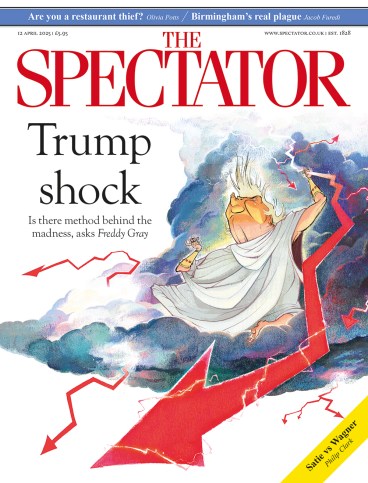
Petroc Trelawny has narrated this article for you to listen to.
The cherry blossom was at its finest as I made my last early morning trip through Regent’s Park to Broadcasting House to present Radio 3’s Breakfast. When hire-bikes arrived in London, the planners were thoughtful enough to install a docking station outside my flat. I have used the heavy cycles for my commute ever since. Over the past 14 years I have become accustomed to the regular faces on my route: the man in an elegant dressing gown, surveying the morning scene while waiting for his dog to pee; the jogger who for some reason processes backwards along the pavement (whatever the supposed health benefits of his technique, I’ve always wondered how he avoids colliding with one of the elderly lampposts, some of which date back to the reign of George IV). The dedicated speed-cyclists of the 545 Racing Club – named after the time their peloton departs – acted as a marker on my morning schedule: if they were already gathered outside Denys Lasdun’s gloriously stark Royal College of Physicians, I knew I was running late. Whether I was cycling under moonlight on an icy January morning, in June when the sun was already dazzling, in autumn when I would slip-slide on the leaf mulch, my voyage through one of London’s great public gardens never failed to set me up for the day. I hope my colleague Tom McKinney will find similar inspiration during the journey from his home in the Peak District to the BBC’s studios at Salford, from where Radio 3 will now launch the new day.
BBC Television’s first home was Alexandra Palace in north London. For five decades its once magnificent Victorian theatre was used as a storeroom for sets and props. It then lay empty for 35 years until an ambitious restoration project brought it back to life. I went there recently to record a special episode of Friday Night is Music Night for broadcast during the week of the VE Day 80th-anniversary celebrations next month. The BBC Concert Orchestra shared the stage with the Central Band of the Royal Air Force. The biggest cheer of the night went to a 99-year-old member of the audience – Joyce Terry, who spent the war as a singer in the pioneering all-female Ivy Benson Band. After the Germans surrendered, it was Field Marshal Montgomery himself who ordered the ensemble to go to Berlin to entertain British and Allied troops. I asked what sort of reception they got. ‘What do you think?’ Joyce laughed. ‘We were two dozen attractive young ladies. We were pretty well received.’ After the recording finished, musicians in immaculate RAF 9A concert dress queued up for selfies with this elegant woman, a living link to VE Day 1945.
In a long weekend in Paris, where the espaliered trees in the Tuileries are bursting into leaf, I caught a bloody, beautifully staged and excitingly sung reconstruction of Rameau’s lost stage work Samson at the Opéra Comique. I stayed with my friend Henrietta, who gave me a battered copy of A.J. Liebling’s excessive (probably downright dangerous) food and drink memoir Between Meals: An Appetite for Paris. His description of a decent oeuf en gelée sent me hungrily to Brasserie Lipp, where I found the perfect example: yolk runny, aspic well herbed and salted, thinly sliced tongue holding it all together. Why does this attractive dish of low-cost ingredients not feature more on British menus? As Liebling says, it ‘is within the competence of any respectable charcutier’.
‘Bach Before 7’ has become the way many Radio 3 listeners start their day. In the few times when I have mischievously suggested we might ‘rest’ the feature, our inbox has overflowed, with 99 per cent of respondents demanding its survival. Salford colleagues assure me that it is safe. Over the years we have thoroughly mined the rich stock of sacred cantatas Bach wrote for the Thomaskirche in Leipzig. The secular cantatas are also well worth listening to. Some are comic, such as the ‘Coffee Cantata’; others celebratory, written for court feasts at Weimar or Köthen, or royal birthdays among the prince-electoral family of Saxony. Producer Susan Kenyon found a brilliant one for my final morning programme: the Cantata No. 71, written for a new town council in Mühlhausen, where Bach worked when he was in his early twenties. It includes the chorus ‘Crown the new regime in every way, crown with blessing!’ It was the perfect sentiment as I handed Breakfast on to Tom. And how splendid that the great Johann Sebastian Bach found inspiration not just from his faith and his princely patrons, but also from a local government election in early 18th-century Germany.









Comments